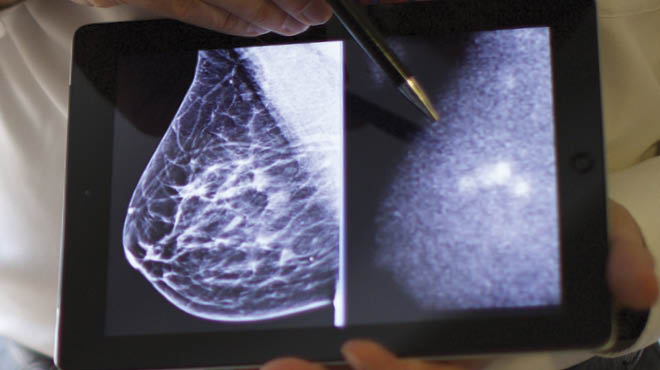Oncology (Cancer)
- Overview
- Prevention/Screening
- Cancer Diagnosis
- Common Cancers
- Breast Care
- Cancer Treatments
- Supportive Care
- Coping With Cancer
- Program Accreditation
- Cancer Center Expansion
- Cancer Resources
Recent Blogs
-

-

-

-

-

-
 Speaking of HealthNourishing your health: Diet and nutrition factors for cancer preventionAugust 02, 2024
Speaking of HealthNourishing your health: Diet and nutrition factors for cancer preventionAugust 02, 2024
Common Cancers
Common cancers you can be treated for in New Prague include colon, lymphoma, prostate, and skin/melanoma.
COLON CANCER
According to the Centers for Disease Control, colon cancer is the second leading cause of cancer death in the U.S. Colon cancer is cancer of the large intestine (colon), which is the lower part of your digestive system, and rectal cancer, which occurs in the last several inches of your colon.
Signs and symptoms of colon cancer include:
- A change in your bowel habits, including diarrhea or constipation or a change in the consistency of your stool that lasts longer than four weeks
- Rectal bleeding or blood in your stool
- Persistent abdominal discomfort, such as cramps, gas or pain
- A feeling that your bowel doesn't empty completely
- Weakness or fatigue
- Unexplained weight loss
Many people with colon cancer experience no symptoms in the early stages of the disease. When symptoms appear, they'll likely vary, depending on the cancer's size and location in your large intestine. If you notice any symptoms of colon cancer, such as blood in your stool or an ongoing change in bowel habits, do not hesitate to make an appointment with your doctor.
Get screened for colon cancer. People with an average risk of colon cancer can consider colon cancer screening beginning at age 50. But people with an increased risk, such as those with a family history of colon cancer, should consider screening sooner.
LYMPHOMA
Lymphoma is a cancer of the lymphatic system, which is part of the body's germ-fighting network. The lymphatic system includes the lymph nodes/glands, spleen, thymus gland and bone marrow. Lymphoma can affect all those areas, as well as other organs throughout the body.
Many types of lymphoma exist. The main subtypes are:
- Hodgkin's lymphoma (formerly called Hodgkin's disease)
- Non-Hodgkin's lymphoma
Signs and symptoms of lymphoma may include:
- Painless swelling of lymph nodes in your neck, armpits or groin
- Persistent fatigue
- Fever
- Night sweats
- Shortness of breath
- Unexplained weight loss
PROSTATE CANCER
Prostate cancer is cancer that occurs in the prostate. The prostate is a small walnut-shaped gland in men that produces the seminal fluid that nourishes and transports sperm. It is one of the most common types of cancer in men. Usually, it grows slowly and initially is confined to the prostate gland, where it may not cause serious harm. However, while some types of prostate cancer grow slowly and may need minimal or even no treatment, other types are aggressive and can spread quickly.
Prostate cancer may cause no signs or symptoms in its early stages. Prostate cancer that's more advanced may cause signs and symptoms, such as:
- Trouble urinating
- Decreased force in the stream of urine
- Blood in semen
- Discomfort in the pelvic area
- Bone pain
- Erectile dysfunction
Make an appointment with your doctor if you have any signs or symptoms that worry you.
SKIN CANCER/MELANOMA
Skin cancer, the abnormal growth of skin cells, develops primarily on areas of sun-exposed skin, including the scalp, face, lips, ears, neck, chest, arms and hands, and on the legs in women. But it can also form on areas that rarely see the light of day — palms, beneath fingernails or toenails and genital area.
There are three major types of skin cancer:
- Basal cell carcinoma — This skin cancer usually occurs in sun-exposed areas of your body, such as your neck or face. It may appear as a pearly or waxy bump, or a flat, flesh-colored or brown scar-like lesion.
- Squamous cell carcinoma — Most often, this skin cancer occurs on sun-exposed areas of your body, such as your face, ears and hands. People with darker skin are more likely to develop squamous cell carcinoma on areas that aren't often exposed to the sun. It may appear as a firm, red nodule, or a flat lesion with a scaly, crusted surface.
- Melanoma — This skin cancer can develop anywhere on your body, in otherwise normal skin or in an existing mole that becomes cancerous. Melanoma most often appears on the face or the trunk of affected men. In women, this type of cancer most often develops on the lower legs. In both men and women, melanoma can occur on skin that hasn't been exposed to the sun. It can affect people of any skin tone. In people with darker skin tones, melanoma tends to occur on the palms or soles, or under the fingernails or toenails. Melanoma signs include:
- A large brownish spot with darker speckles
- A mole that changes in color, size or feel or that bleeds
- A small lesion with an irregular border and portions that appear red, white, blue or blue-black
- Dark lesions on your palms, soles, fingertips or toes, or on mucous membranes lining your mouth, nose, vagina or anus
Most skin cancers are preventable. To protect yourself, follow these skin cancer prevention tips:
- Avoid the sun during the middle of the day. For many people in North America, the sun's rays are strongest between 10 a.m. and 4 p.m.
- Wear sunscreen year-round. Use a broad-spectrum sunscreen with an SPF of at least 15. Apply sunscreen generously, and reapply every two hours, or more often if you're swimming or perspiring.
- Wear protective clothing. Sunscreens don't provide complete protection from UV rays.
- Avoid tanning beds.
- Be aware of sun-sensitizing medications. Some common prescription and over-the-counter drugs, including antibiotics, can make your skin more sensitive to sunlight. Ask your provider or pharmacist about the side effects of any medications you take.
- Check your skin regularly, and report changes to your doctor.
Make an appointment with your doctor if you notice any changes to your skin that worry you.